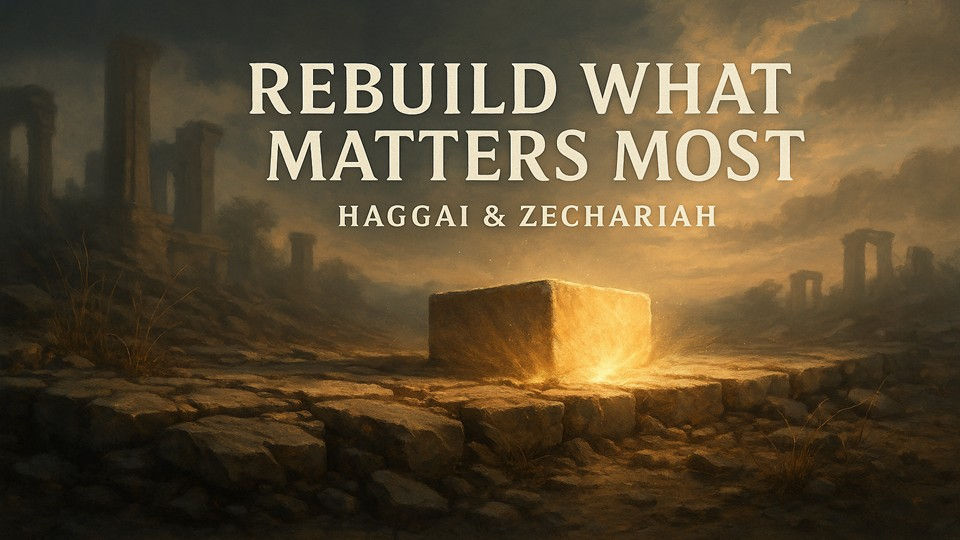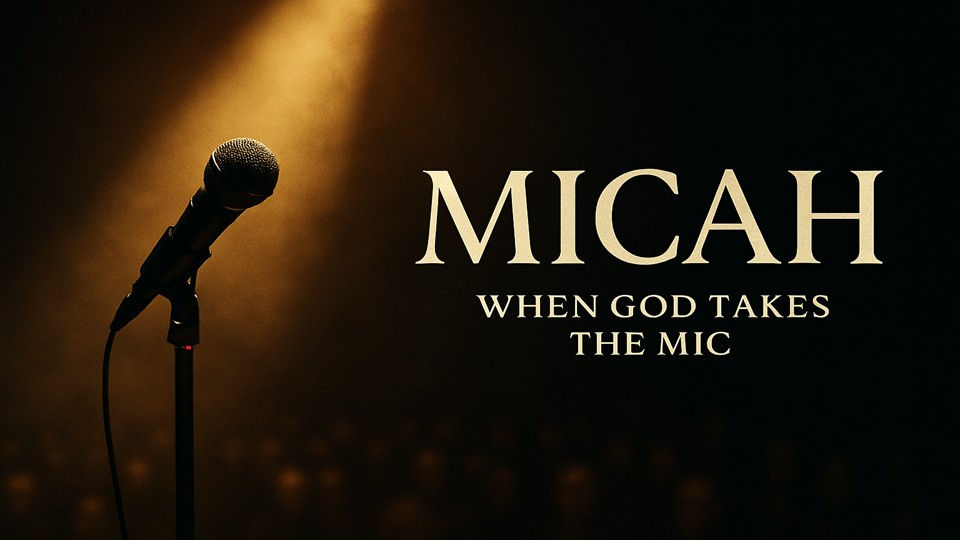When Justice Doesn’t Add Up
- Office FaithCC

- Aug 29, 2025
- 4 min read
There’s something uniquely unsettling about injustice—especially when it’s personal.
It’s one thing to hear about corruption or oppression in the news. But when it creeps onto your front porch, when it affects your family, your job, your health, your church—suddenly, the idea of a just God becomes more than a theological concept. It becomes a demand.
“Why is this happening?”
“Where is God?”
“Why doesn’t He act?”
These are not new questions. Long before modern protests or courtroom drama series, long before you scrolled past headlines that made your blood boil—two prophets stood in the rubble of confusion and asked the very same things.
Their names were Nahum and Habakkuk.
And their words might be exactly what your soul needs today.
When the Verdict Is Delayed
Nahum watched a cruel empire—Assyria, and its capital city Nineveh—bully the world unchecked. Its armies were brutal. Its kings arrogant. Its sins stacked sky-high. God’s people had suffered at their hands for decades.
But when Nahum looked for divine retribution… nothing.
And then God spoke.
“The LORD is a jealous and avenging God…The LORD is slow to anger but great in power; The LORD will not leave the guilty unpunished.”(Nahum 1:2–3)
In a stunning reversal, Nahum delivers God’s word: Nineveh’s time is up. The wrath of God is not forgetful—it’s patient. But not forever.
We often mistake divine patience for divine passivity. But justice delayed is not justice denied. Nahum assures us: God sees. God knows. God will act.
“Justice may be delayed, but the gavel is already in His hand.”
When the Method Is Disturbing
But what if judgment comes… and it doesn’t feel just at all?
Habakkuk lived about 100 years after Jonah had preached to Nineveh, and around the same time Nahum declared its doom. But Habakkuk wasn’t watching evil “out there”—his problem was evil in here.
Judah, the southern kingdom of God’s people, was collapsing under its own corruption. Leaders were greedy. Courts were twisted. The poor were trampled. And God? Silent.
So Habakkuk does something rare: he argues with God.
“How long, LORD, must I call for help, but you do not listen?Or cry out to you, ‘Violence!’ but you do not save?”(Habakkuk 1:2)
And God answers. But the answer doesn’t clear things up—it makes them worse.
“I am raising up the Babylonians…”(Habakkuk 1:6)
Wait, what?
Babylon? The bloodthirsty empire more violent than Judah? God’s solution to injustice… is to unleash greater injustice?
Habakkuk is stunned:
“Why do You tolerate the treacherous? Why are You silent while the wicked swallow up those more righteous than themselves?”(Habakkuk 1:13)
Justice came… but it didn’t add up.
The Gospel in the Gray Areas
This is where many people lose faith.
When life gets messy. When pain lingers.
When God answers with silence—or worse, with a method that makes no sense.
It’s one thing to say, “God is just.”
It’s another to believe it when the wicked flourish and the worshipers bleed.
But Habakkuk shows us a different kind of response. Not resignation. Not rage. But wrestling.
“I will climb up to my watchtower…and wait to see what the LORD says…”(Habakkuk 2:1, NLT)
Sometimes faith doesn’t look like shouting praise.
Sometimes it looks like climbing a tower and refusing to walk away.
“You don’t need polished prayers. You just need to stay in the conversation.”
The Righteous Will Live By Faith
God’s reply to Habakkuk is brief, but breathtaking:
“The righteous shall live by his faith.”(Habakkuk 2:4)
This isn’t just a comfort blanket for confusion. It’s a framework for how to live in a world where justice is slow and sin still roams free.
In fact, this verse is so foundational that Paul quotes it in Romans, Galatians, and the author of Hebrews repeats it again: "The righteous will live by faith."
Why?
Because faith says:
“God is still holy even when I don’t understand.”
“God is still just even when the method is messy.”
“God is still good even when the verdict hasn’t come.”
And that kind of faith doesn’t rest in emotions or explanations.
It rests in a Person.
The Gavel Fell—At the Cross
Nahum and Habakkuk never saw the full picture.
But we do.
Because centuries later, another verdict was rendered—not in Nineveh or Babylon, but on a hill outside Jerusalem.
“God made Him who had no sin to be sin for us, so that in Him we might become the righteousness of God.”(2 Corinthians 5:21)
At the Cross, God didn’t explain His justice—He demonstrated it.
One sinless man condemned so that guilty people could go free.
“The gavel didn’t fall on the wicked. It fell on the only truly innocent man who ever lived.”
This is the mystery of the gospel:
God’s justice? Fully satisfied.
God’s mercy? Freely offered.
God’s silence? Broken by the cry, “It is finished.”
And that’s why we can wait. That’s why we can trust.
Because we’ve already seen the verdict.
We’ve already met the Judge—and He chose to take our place.
So What Now?
We live in a broken world with courtroom questions on every street corner.
You may not have answers for all of them—but you can point to the one place where justice and mercy finally held hands: the Cross.
“No sin will go unpunished. Either on the sinner…Or on the Savior.”
So if you're wrestling today—good.
That means you’re still in the fight.
But don’t forget:
God sees. God knows. God will act.
And He already has.
So climb the tower.
Stay in the conversation.
Wait for the answer.
Because it’s already been written in blood.





Comments